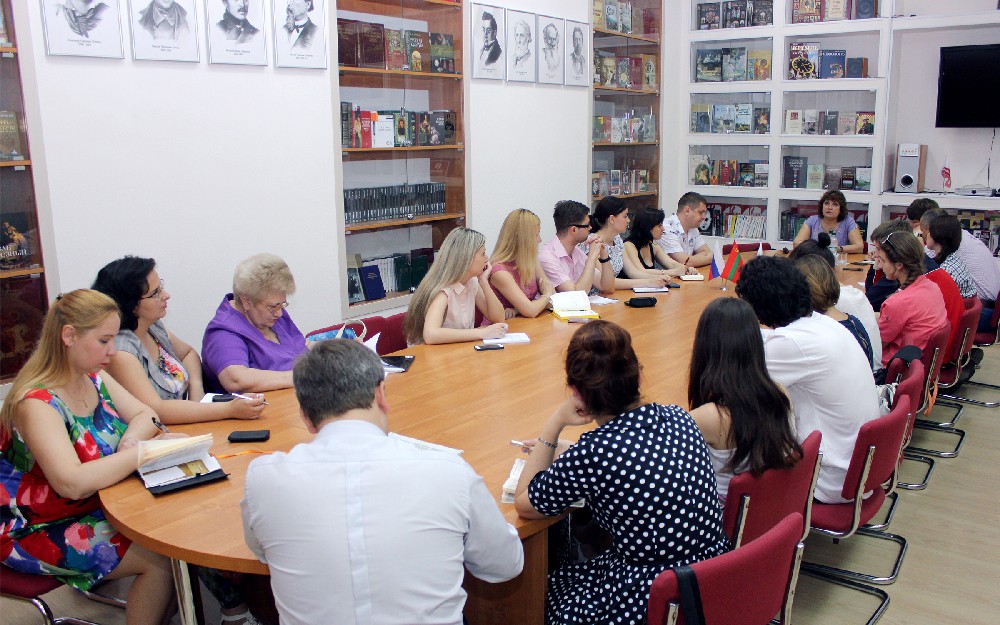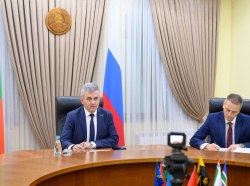Lectures for the journalism department students were delivered by the deputy director of the Russian Institute for Strategic Research (RISS), head of the Centre for Baltic and CIS Countries, ethnologist, political scientist, doctor of history, Tamara Guzenkova, and the head of the RISS press office, associate professor of the journalism department at Moscow State University, Marina Yanglyayeva.
Besides, they participated in the round-table discussion «Journalism in the information-oriented society: new challenges and opportunities», the PSU press service reports.
Tamara Guzenkova dedicated the most part of her lecture to modern political processes, including assessment of experts' views on the possibility of characterising a growing number of military conflicts as prognostication of war and on modern warfare in the situation when there are no direct military clashes.
Commenting on stereotypes and opinions on the Ukrainian conflict, she pointed out that «there are a great many points of views, theories, versions about it, and everyone is an expert, but draws information in the media where information has already been formulated and presented in a certain form, thus there is no special need to think it over.
According to her, Ukraine's developments have massive influence on Pridnestrovie's political and economic situation. Tamara Guzenkova underscored that Russia watches closely these processes and expresses its firm position: Pridnestrovie will not be abandoned and will not be a chip in political bargaining.
Marina Yanglyayeva spoke to the students about the history and general state of modern foreign journalism. The modern mass media constructs an overall picture of the world, influences the establishment of a state, forms public opinion and reflects views of the previous epochs.
«There is no doubt that the USA is an absolute globalist in this sphere. The influence of «americanisation' is manifest in many cultures of the world,” stated Marina Yanglyayeva.
Even a cursory investigation into the journalism of USA, Great Britain, Germany, France, Italy and Japanese reveals an interesting trend: the more regulations restrict a journalist, the lower level of self-control, moral and social responsibility he has. Thus, the existence or absence of restrictions in journalism affects the level of national journalism.








